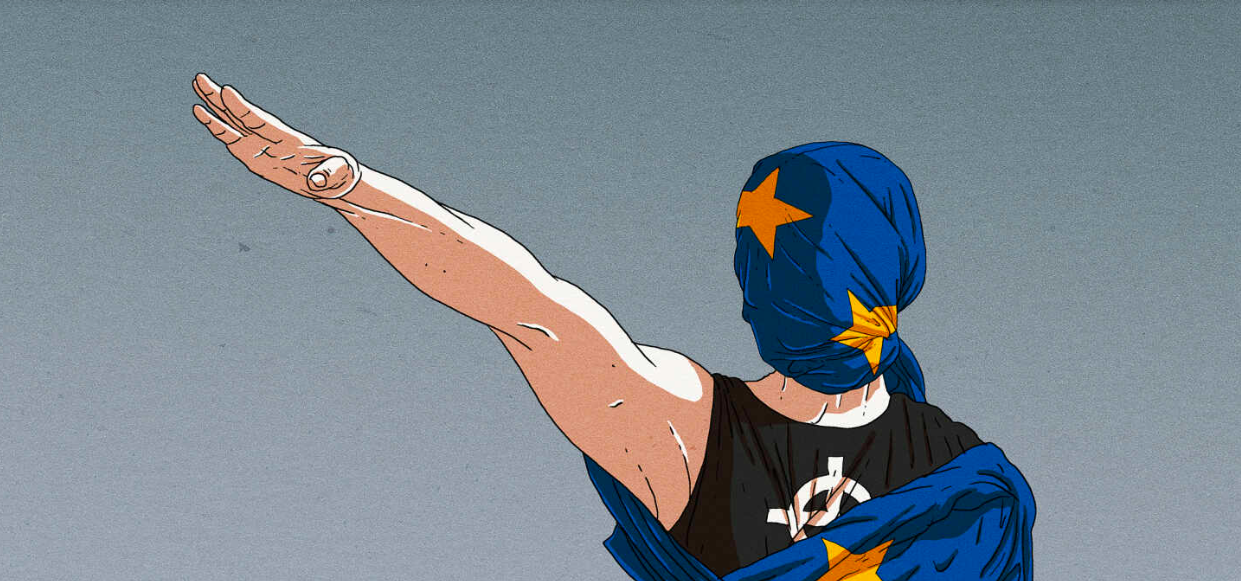
Renowned journalist and author Cem Kucuk dissects the outcomes of the European Parliament elections, shedding light on the resurgence of far-right movements.
Despite the center managing to maintain its position, Kucuk's evaluation prompts reflection on the unsettling query: "Will a new Hitler emerge?", as the question marks the first of its kind since World War II.

In France, Marine Le Pen's National Rally (RN) saw a 10-point increase compared to the 2019 elections, securing 31.5% of the vote.
President Emmanuel Macron's Renaissance Party, on the other hand, lagged behind by 15%. The Socialist Party, with 14% of the vote, secured the third position.

In Germany, according to exit polls, the conservative CDU/CSU secured the top spot with around 30% of the vote, similar to the 2019 elections.
The far-right AfD increased its vote share by around 5% compared to five years ago, reaching 16%. Despite being expelled from the ID group in the European Parliament due to its Nazi-apologetic rhetoric, AfD is expected to be represented in parliament with 17 members. Chancellor Olaf Scholz's SPD remained at a record low of 14%, becoming the third-largest party.

In Italy, Giorgia Meloni's Brothers of Italy (FdI), which had secured 6.4% of the vote in the 2019 elections, saw a significant surge in support, surpassing 28.8% and claiming the top position.
The center-left Democratic Party became the second-largest party with 24% of the vote.

In the Netherlands, Geert Wilders' Party for Freedom (PVV) saw significant gains compared to five years ago but failed to secure the top position. PVV, with 17.7% of the vote, increased its European Parliament seats from 1 to 7.
A closer look at the election results reveals that the center managed to maintain its votes, yet the far right significantly gained ground in France and Germany.
Although concerning the future, it's crucial to note that Marine Le Pen lost to Macron in the French presidential elections, but she could win the next one.

The strengthening of the Hitler-supportive AfD in Germany poses a grim scenario for all immigrants and foreigners in the country. It's a dire situation for German citizens too because without immigrants, the country would face economic challenges.
The outcomes of these elections will undoubtedly impact Türkiye, likely more positively. Despite cultural hesitations toward others, Europe cannot sustain itself without immigration. How Europe navigates this dilemma will shape its future. It must proceed with wise decisions to avoid stumbling.
The vaccine issue has negatively impacted EU leaders. The mismanagement of the pandemic has been one of the factors contributing to the rise of the far right.
Let's take a look at an analysis from The New York Times dated June 7, titled "Never Waste a Crisis"

Cem Kucuk, a journalist and writer, graduated from Istanbul University with a degree in American Culture and Literature. Presently, he hosts programs on the TGRT news channel and continues to contribute columns to Türkiye Gazetesi.